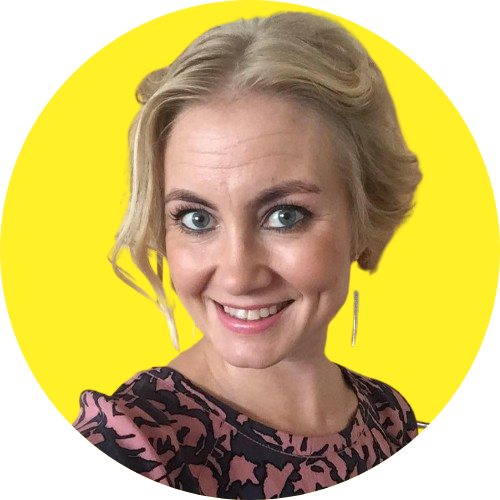Self-management is a skill that is worth practicing
What is self-management and why should you do it? You may think it’s just about surviving the day’s work on schedule. But maybe it would be good to stop and think about the bigger picture. Why are you doing your work or other things in your life, and what are you trying to achieve by leading yourself better? After all, it’s about knowing how to plan your life, being aware of your goals, and how to reach them to make your life meaningful and unique. Considering your own wellbeing is also an essential part of self-management. Work cannot be done at the expense of your own wellbeing.
Self-management seems to be in demand right now, with up to 90 % of Auntie package users raising the issue in their own sessions. The subject has been especially emphasized in knowledge work, but self-direction has also taken on new meanings for everyone.
However, self-management is important at any kind of work, not just in office work. And in all kinds of companies as well, in private companies, in public administration, such as municipal offices or anywhere. There are very similar challenges, although the industries may be very different.
In self-management, it is important to internalize that everyone is really also responsible for themselves. As an employee but also at home – after all, we are responsible for our children or what we are like as a spouse or friend. Being a skilled and enthusiastic employee is based on successful life management outside the workplace.
8 – 8 – 8 model
We ideally have 8 hours a day of work, 8 hours of free time and 8 hours of sleep. If this actually happens 80-90 % of the time in everyday life, we can assume that things are pretty well in terms of coping
The psychological flexibility of an employee includes the fact that sometimes you stretch – there will be those long days and overtime hours. But if overtime becomes the rule, something is wrong. It is the employee’s own responsibility to raise this issue if overtime is the norm rather than the exception. Is the workload simply too much, or has your own exhaustion reached a level where you can no longer do what you used to? In this case, one should talk with the supervisor and the employer and think what can be done about this situation now. However, it is a matter of mutual responsibility: it is up to the employer to take care of the situation, but it is the employee’s responsibility to bring up the problem.
There are even those people who actually enjoy working long hours. Is it then the employee’s own responsibility to take care of his or her own coping, and is it enough for the employer that the employee claims to be coping well? Life is not on balance if 13-14 hours of the day are used for work. A part of self-management is also to keep normal hours at work.
A lot of research has been done to measure work efficiency. On average, a person is able to do productive work that requires creative thinking for about five hours a day. Everything else is preparation and background work, as well as the social side of the work, which is now pretty much minimal due to the remote work. How much of the working time is really efficient and productive if it requires plenty of overtime? Finding a balance between work and personal life increases endurance, motivation and life management.
Of course, work is of great importance to human wellbeing, and we spend a large part of our lives at work. But other aspects of life must also be relevant. You have to take care of yourself so that work does not take all of your time. You need time for leisure, rest and social relationships. If any of these areas start to weaken, then yes it will show up in other areas as well.
As an Auntie professional, I recommended my clients who work on-site or in a hybrid mode to use commutes for recovery or mindfulness exercises, or otherwise to tune in to the day. On the other hand, a commute can also be a good way to distinguish between work and leisure as a way to reset your mind of work issues before you go home. A remote worker can try to achieve the same even by just walking around the block in the mornings before starting work and after the work day. And not just by moving from the kitchen table to the couch.
Also here, the employee’s own responsibility to separate leisure time from working time is reflected. An employer can provide webinars and trainings on self-management, but if an employee doesn’t really start doing these things in their daily lives, then nothing changes.
Who manages our calendars?
At your work when exercising self-management, it is very important to stick to existing structures. The employer sets these frameworks, such as team structures and common rules of the game. It is also important to respect other people’s working hours and their work.
Who manages your calendar? On a normal workday, emails come in, different communication apps beep all the time, and there is always a rush somewhere. A systematic calendar management and planning ahead helps. All regular team structures like team meetings are sure to end up on the calendar, but you should also write down your own work such as reporting and set aside time for them. You should also set aside time for email once a day, for example, and do not check for new messages 10 times a day. Think about how many urgent emails there are that really need to be responded to immediately? If you constantly expose yourself to a flood of information, the work will remain chaotic.
Do you want to book a meeting with a coworker? If you see that they clearly have made their own reservations in their calendar, it does not mean there are free slots for you there! You should not start messing up the work day planned by a coworker. The time and calendar of another employee are also to be respected.
Self-management is also about setting boundaries, so that you do the work that falls within your responsibilities and goals. It is important to come prepared for meetings, and thereby respect the time and work of others. On the other hand, meetings can also be questioned: is this meeting important for my basic task?
Lead others as well
No one can know what you are doing if you don’t tell others about it. The work ethic of for instance the Finns is very strong. Which is, of course, a great feature and a very good thing for the employer that people are conscientious. But if you feel like everyone is always walking all over you, conscientiousness will turn against itself. It is your responsibility to tell others what things you are currently working on and what your priorities are. You may have a latent aggressive feeling that others are not realizing that your work is important too. However, it’s not about a lack of appreciation, but that they don’t know what you’re doing in your job right now. Bring out the problematic issues, inform and tell how you feel, don’t blame others.
It is worth highlighting the content of your own work and its significance. Be proud of what you do. Who will raise that cat’s tail if you don’t!
Debriefing of emotions hour
Team meetings are important for dealing with things, but at the beginning of each meeting you could ask how things are going, and what are the feelings. It is important to be able to discuss what emotions the work community and work itself evoke. A debriefing of emotions hour could reduce the so-called corridor discussion or bilateral discussions. They easily generate a variety of assumptions, but during an emotions hour you could discuss how you feel about something right now in relation to a particular job. There could be a time and a place for venting emotions. This would provide a secure framework for an ongoing debate that allows for an open and constructive dialogue. However, this requires a mentally safe environment so that things do not go in the wrong direction.
Thank God it’s Friday
Could the week’s schedules be built with more emphasis on the early parts of the week so that on Friday you wouldn’t be quite exhausted? On Friday, you should be able to start doing the things that give you strength and energy, so you can come back to work all refreshed on Monday morning. It’s really sad that we only live from one weekend to another, from one vacation to another. It would be better to have everyday life and a work week built so that they would go in a melted harmony. Perhaps it would be worthwhile to systematically place the most challenging and thought-provoking jobs in the early part of the week, when there is perhaps more strength. And then lighten the work towards the end of the week. If at all possible.
The mind and brain can be compared to a hard drive, sometimes it too needs to be cleaned, organized and emptied. Otherwise it will be filled with clutter. Micro breaks work well in recovery. A moment away from the workstation and from the computer is needed. Jumping in place, meditation, anything, that doesn’t become external stimuli.
Finns are known for “Sisu”, which is a great, but untranslatable Finnish concept, meaning strengh, perseverance and resilience, but it also has certain negative connotations about having to cope alone. New dimensions could be developed in the context: you don’t have to make it by yourself, you can ask for help. There are times when asking for help is the best you can do. Self-leadership comes into play when you can tell when you need help.
5 tips for self-management
Finally, I’ll give you five tips to help you improve your self-management.
- Take responsibility for organizing and managing your own work
- Respect the work and working hours of others
- Identify and stick to boundaries
- Take care of your own recovery, take micro-breaks and separate work and leisure
- Plan your work and develop structures for it, manage your calendar
From the Auntie packages, I recommend Leading Me to help you strengthen your self-management skills.
Leading Me package helps you increase the ability to lead oneself, find out the meaning of leadership skills in one’s own work, develop goal setting skills and organize your work in a more efficient way.
The new Bounce Back and Bounce Back Together packages will help you build your resilience.
Writer:

Nina Kokko
This blog was written by our Auntie professional Niina Kokko who is a certified Solution Focused Therapist and an expert in child protection





